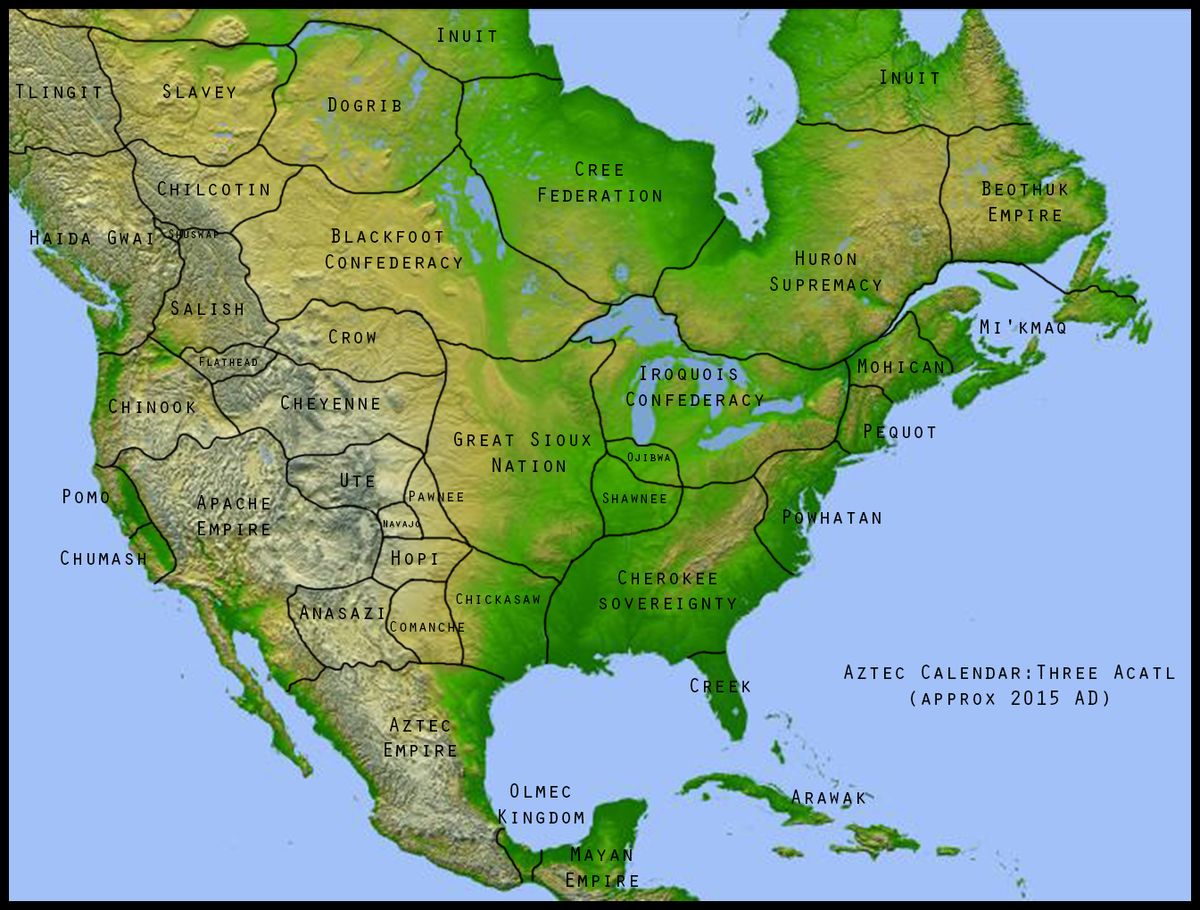
It purports to show what would have happened had Europeans never come to America. It's not accurate; it's a projection by someone writing speculative history of what would have happened to the various native groups 500 years after Columbus. It's completely bogus: Europeans did come to America, their way eased by Smallpox and other pestilence, and these borders are quite different than what they found. The Europeans would have come to America eventually, no matter what happened. The Vikings had come 500 years before Columbus, and there were lots of other explorers who would have found their way here sooner or later had Columbus somehow failed. But it's an interesting question: what might have been different if Columbus and his peers had met with credible resistance?
In 1492, Europe had the most advanced civilizations in the world, but not by much. China and the Middle Eastern civilizations had been more advanced only a century or so earlier, and there were at least two unrelated civilizations in America that were not far behind, too. No doubt Europe was advancing faster than the rest, fostered by enlightened rejection of the authoritarianism and religious fundamentalism that had held them back for a millennium.
But Europe was able to overrun the New World, not by the sophistication of their technology, although that helped in some places, and certainly not because of their religion, but because they were preceded by devastating disease, especially smallpox, but probably also plague and others, which the first explorers had brought along with them. The English settlers that arrived in Virginia and New England 120 years after Columbus were surprised to discover fallow agricultural land that had already been cleared and a native population that was willing to teach them how to farm it. Cortez and Pizzaro, arriving a century earlier, were similarly able to exploit the political disruptions caused by the disease.
What would have happened had disease somehow not been so effective against the natives? We have a few hints: The Vikings made a few incursions and were, in all but one case, driven back by the locals, who they called "Skraelings". In the one exception, their settlement was in the northmost part of Newfoundland, where life was too hard for the natives, and the Vikings also gave up and went home after a few decades. In the places that the natives had a few centuries after Columbus to recover, such west of the Appalachians, and especially the US great plains, the natives fought back pretty hard and it took a very big army to defeat them.
We can imagine a scenario where things had gone this way across the continent: Cortez attacked Mexico barely 20 years into the devastation. What if the timing had been different by a few decades and the Aztecs who had immunity to Smallpox had had a chance to repopulate? Cortez would have met fierce resistance, and certainly wouldn't have been able to conquer so thoroughly. Something more resembling what happened in India or China is a lot more likely: trading outposts supported by military would have left the existing civilization roughly intact, and European dominance would have needed to be more insidious and commercial in character. The native civilizations would have been changed radically by the outsiders, but there would be a clear political and cultural lineage to this day, where in fact they were truncated--little pieces of their own culture merged into the dominant European one. There would be plenty of Europeans in America, just as there are plenty of Asians and Africans in Europe, but something like the map above might have happened.